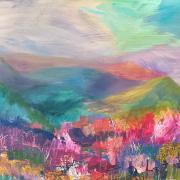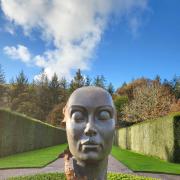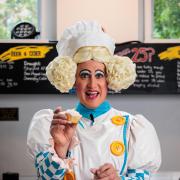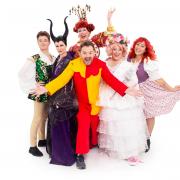Laura Dale reports on education in Devon
National Marine Aquarium
From pre-school to higher education, the National Marine Aquarium in Plymouth offers education programmes for all ages.
Set up in 1998, the Aquarium was the first the UK that was set up solely for the purposes of education, conservation and research. About 30,000 children go through the doors on a yearly basis, plus outreach work which reaches a further 5,000 children.
Nicola Murray, the National Marine Aquarium discovery and learning officer, explains: “We use the marine environment as a hook really. There are children who don’t like certain subjects, but we can shift their focus; for English they can write a leaflet for the aquarium, or for maths they can work out how much to feed the fish and how much water to put into the tank.” She adds: “We also teach children about conservation and the sea, so they get to understand more about it.”
Teachers can come in and explore on their own with their class or they can use one of the interactive ‘off the shelf’ tours, like the maths tour or the habitat tour. Teachers can also book workshops. Nicola recalls: “One teacher wanted the pupils to learn about what fish you can eat and to go back to school and make a fish pie – not with the marine aquarium fish!”
The Aquarium also runs half hour long science shows with intriguing titles like Our Blue Planet and Super heroes of the Sea.
And if that’s not enough, the aquarium even offer sleepovers (Sleeping with the sharks) where fish fans can stay overnight and see what happens in the underwater world late at night; it includes activities, a film, a midnight snack and breakfast in the morning.
Reading app
A primary school teacher from Devon has launched an app called ‘Fonics’, designed to help three to six year olds learn how to read more effectively.
Sophie Cooper, who came up with the app, explains: “Learning to read is the most important skill we teach children when they first start school, it is a skill they will use every day for the rest of their lives. Those who get left behind will find themselves at a constant disadvantage.”
Fonics is a new type of educational resource that can be used both at school and at home to help them learn to read. It works by using ‘gamification’, a term used to describe the use of games in teaching and learning.
“By making the lessons fun, students learn without even realising. Each student has their own game, allowing them to improve their reading in their own time and at their own pace,” says Sophie.
Sophie believes one of the most important factors to improving literacy and reading is by promoting reading at home.
The app is free and is available to download now across all major app stores or visit fonics.co.uk
Top gallery displays pupils’ artwork
Year six pupils from Exeter Junior School have had their artwork displayed in The National Gallery in London. It was chosen as part of the ‘Take One Picture’ project run by The National Gallery which gives selected schools the chance to exhibit their work in the gallery over the summer.
During the autumn term, pupils created their own art in response to a painting from The National Gallery, which for 2016 was Thomas Gainsborough’s Mr and Mrs Andrews.
An excited group of 14 children were shortlisted to represent the project and went to London to see their displayed work. The head of art at the school, Claire Handley, accompanied the group: “It was very rewarding and exciting to see our children’s hard work and wonderful artwork displayed in such a prominent exhibition. I am very proud of all of the children for their achievement.”



























